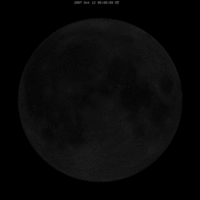| Link: August 21, 2017: A total solar eclipse visible in parts of the USA! |
|
Wednesday, August 2nd, 2017 19:44:26 GMT |
August 21, 2017: A total solar eclipse visible in parts of the USA!
An event so rare that the news seems worth repeating here, too.
▲ Top ▼ Bottom △ TOC ↓ Down Up ↑
| Link: A Slate.com article about Pluto New Horizons mission |
|
Thursday, February 6th, 2014 03:34:23 GMT |
Link |
Pluto New Horizons mission: The dwarf planet explains the history of our solar system
▲ Top ▼ Bottom △ TOC ↓ Down Up ↑
| Link: Water vapor detected on dwarf planet Ceres |
|
Wednesday, February 5th, 2014 05:37:21 GMT |
Link |
▲ Top ▼ Bottom △ TOC ↓ Down Up ↑
| Links: The M82 supernova is reported to be at peak brightness |
|
Wednesday, February 5th, 2014 05:19:43 GMT |
Links |
But, hopefully astronomy software such as Stellarium* or Celestia would help.
And an article from Jan. 31, 2014, from Gizmag.com:
I haven't yet figured out where in the sky to look for it.
▲ Top ▼ Bottom △ TOC ↓ Down Up ↑
| Sun., Nov. 3rd: Solar Eclipse, and Daylight Savings Time ends in the USA |
|
Saturday, November 2nd, 2013 15:51:30 GMT |
From Weather.com:
Daylight Savings Time ends tomorrow morning - Sunday, Nov. 3rd.
According to Google, sunrise is 6:56 AM EST (not EDT) in Hubbard, so, since the Weather.com article above says the eclipse should last for about 30 minutes past 6:38 AM in Washington D.C., maybe it will also be visible where I am.
I'm going to prepare a camera and see if I can take some pictures. Apologies if they somehow turn out really stupid-looking. I have little practice taking pictures, I've seldom taken very many at all. (Usually for lack of a camera, but at least that's no longer a problem.)
Here's a page from Exploratorium.edu with details on how to make something with which to safely, indirectly view an eclipse:
If it's visible at all here, I'm only going to look at it on my camera's screen (or in pictures), or maybe with one of the lazier methods listed on that page.
It will also be visible elsewhere in the world. From EarthSky.org:
This might be the first solar eclipse I'll ever see in my life, if it happens to be visible this far west (Hubbard, OH) tomorrow morning.
If you type something like "sunrise in hubbard" (or whatever your town name is) into Google, Google might tell you what time sunrise will be, above your search results.
Edit, posted at 8:16 PM. I should probably point out (even though probably most people know this) that you should always avoid looking directly at the sun.
▲ Top ▼ Bottom △ TOC ↓ Down Up ↑
| June 5th/6th, 2012: Last time Venus will transit directly in front of sun until 2117 |
|
Tuesday, June 5th, 2012 14:48:23 GMT |
Just a quick note to point out that a rare astronomical event is soon taking place (or maybe is in progress already, I'm unclear on the details).
Venus is or will be moving directly in front of the sun for the last time until 2117.
Here are some links about it:
Venus Transit: A Planet's Day in the Sun
| Lunar Phases Animation |
|
Thursday, November 17th, 2011 12:33:45 GMT |


